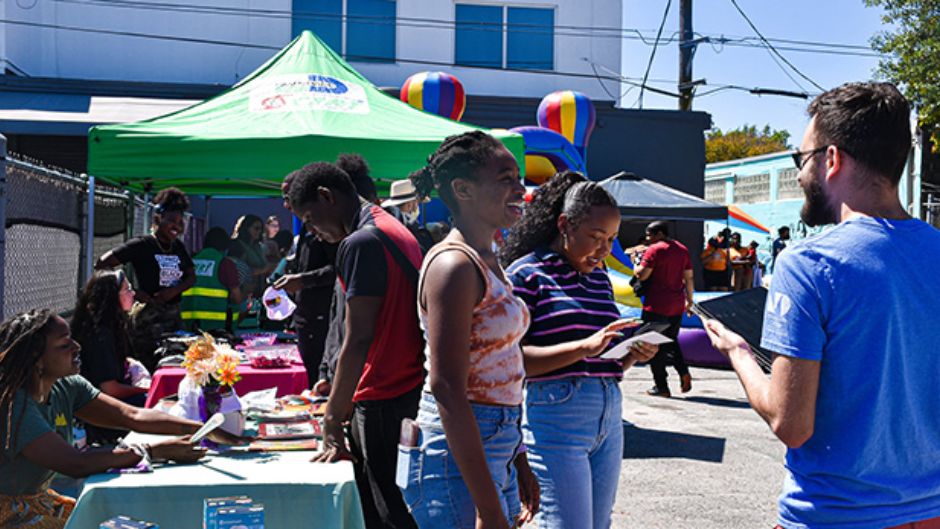Failing air conditioner units, cracked foundations, and mold-filled walls are a few issues afflicting households in Miami-Dade County. And as the climate crisis continues to wage war, marginalized communities are calling for weatherization, the process of protecting infrastructure from the elements. The most significant motivators include combating climate change and rising energy costs. Data shows that the national average energy burden, defined as the percent of household income spent on energy costs, is three times greater for economically marginalized households than for other households. Yet, there is a growing divide between those who can weatherize their homes and those who do not have access to the tools or funds necessary to do so.
To meet this urgent need, the Environmental Justice Clinic at UM Law partnered with People’s Environmental and Economic Resiliency Group, a nonprofit law firm in Miami committed to sustainability and resiliency. In collaboration with community partners, P.E.E.R. Group launched the Equitable Weatherization Clinic to focus on creating equal opportunity for access to weatherization in historically marginalized communities.
“The Equitable Weatherization Clinic serves as the bridge between clients and existing weatherization services. We work to address the unequal distribution of access to services by identifying barriers to weatherization and developing solutions,” said Abigail Fleming, Practitioner-in-Residence at the EJC.
Equitable weatherization is an opportunity to meet community needs by enhancing access to energy-efficient and resiliency improvements, particularly for households within marginalized communities subject to immense energy burdens that put both health and housing security at risk. By reducing energy consumption and increasing energy efficiency and storm protection, weatherization mitigates local carbon emissions, which helps alleviate the harshest consequences of global warming felt along racial and socioeconomic lines. Most notably, the global climate simulator En-ROADS data show weatherization paired with renewable energy can keep global temperature rise within 1.5 ºC.
In addition to energy efficiency, research shows numerous health benefits associated with weatherization due to improved indoor air quality, such as reduced asthma and respiratory distress -- medical issues that occur at their highest rates in Black and Indigenous communities.
“Equitable weatherization is essential to combat the impacts of climate change,” explained EJC intern Kaitlyn Buffaloe, a second-year law student at Miami Law. “By providing access to the benefits of weatherization, including improved health, communities can grow and thrive,” said EJC intern Kiyra Ellis, a second-year law student at Miami Law.
In the EWC, students like Buffaloe and Ellis advocate for equitable weatherization services, including rooftop solar systems and sustainable landscaping, and provide direct services to clients. Students assist clients with applications for applicable services and with navigating the permitting processes, a barrier to services for many households. Students also provide resources, such as a do-it-yourself weatherization toolkit, so that communities can get started tackling energy efficiency, regardless of funding.
In addition to direct services, the EWC is also working with community partners to employ a community weatherization workforce. “This year, we are developing a community workforce trained in employable baseline weatherization skills to help with initial weatherizing and rooftop solar installations, including energy audits, minor roof repair, HVAC, windows/insulation, green landscaping, and solar installations,” said Theresa Pinto, president of P.E.E.R. Group. “Auditing, or tracking the overall reduction in carbon emissions, is essential and currently our region has a shortage of trained energy auditors.”
Most importantly, the EWC is scalable, replicable, and will have lasting impacts within the communities it serves because it simultaneously addresses housing injustice and energy injustice while helping mitigate carbon emissions, each of which affects every human because housing is a fundamental element of our built environments and climate change is a global threat.
“The lack of safe, sustainable, and affordable housing is not unique to Miami-Dade County, nor is the disparate energy burden felt along socioeconomic lines. In this time, employing the EWC across the nation would bring about a lasting collective impact,” said Pinto.
Read more about the Environmental Justice Clinic

